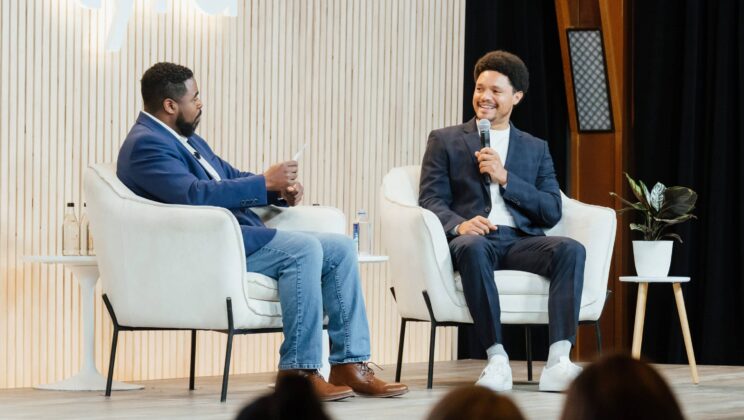Why Organizational Development Is Essential for Workforce Mental Wellness
March 29, 2022
The global workforce is in crisis. COVID-19, economic uncertainty, and social injustice continue to disrupt all aspects of how people live and work. Human Resources (HR) leaders have had to dramatically shift their benefits strategies to help companies navigate the resulting fundamental changes to work culture. Employees are increasingly experiencing mental health challenges from stress and burnout to anxiety, depression, and substance use. It’s not surprising that 84 percent of workers in the 2022 State of Workforce Mental Health survey said they’ve experienced at least one mental health challenge over the past year.
HR and benefits leaders have had to rethink aspects of how their companies function to address turnover, shifting employee needs, and changing attitudes toward work that are impacting business success. Given that 50 percent of employees have left a role due to mental health reasons—which is 47 percent more than in 2019—employers recognize that supporting employee mental health is vital to the future of their business.
Traditionally, employers have focused on providing their people with self-care tools such as meditation applications, wellness stipends, and mental health benefits that put the onus on the employee for championing their own mental health at work. While these benefits are crucial, they are just the first step in addressing the full scope of issues that can impact workforce mental health. It is vitally important to also assess and support a culture of mental health across the organization and within teams. People spend the majority of their time each week in the workplace—whether virtual or in person—so the relationships, interactions, stressors, and behaviors they experience have significant impact on employee well-being. Building those experiences intentionally to create a supportive culture that promotes communication, wellness, and psychological safety is an imperative for HR leaders.
With that in mind, Lyra Health introduced Workforce Transformation: A set of organizational development tools and services to support mental health in the workplace.
Creating a company-wide culture of mental wellness
Workforce Transformation helps companies proactively build cultures of mental wellness. It offers HR, managers, and teams learning and development curricula and advisory services dedicated to providing a holistic approach to improving mental health and advocacy throughout the workplace. Workforce Transformation promotes resilient workforces and psychologically safe environments, and reduces organizational risks like turnover and burnout through three methods:
- Learning and development solutions, such as manager-specific content that facilitates structured conversations, which can be deployed at scale and are customizable to your organization’s goals. This includes access to Lyra Learn, an e-learning platform containing on-demand digital courses and live events—taught by Lyra Health experts—on topics for both managers and individual contributors about mental health at work. Lyra Learn gives HR and benefits leaders the ability to assign courses and track completion in order to scale education across teams, departments, and entire workforces. Users can also access live events through Lyra Gather to promote discussion-based, social learning around sensitive subjects that examine diversity, equity, inclusion, and belonging (DEIB), mental health, and the intersection of these topics.
- Strategic advisory services, developed by Lyra’s team of subject matter experts, which advise HR and benefits leaders on how to support mental health across the entire workforce through workplace initiatives such as Employee Resource Groups (ERGs) and learning and development programs. Additionally, manager consultations from Lyra’s clinical team address one-on-one issues between managers and direct reports that involve mental health concerns.
- Workforce well-being dashboard, which uses anonymized, aggregated data to provide near real-time insights into care utilization and issues related to employee mental wellness. These metrics can highlight trends and encourage leaders to promote specific services to address them.
Employers that want to improve their company cultures have an opportunity to evaluate whether their core values and organizational norms support mental health. Understanding the current status of the work environment–through the tools provided by Workforce Transformation, for example–provides a starting point for up-skilling managers to intentionally promote mental wellbeing at work. It also paves the way for championing mental health through internal programs—including ERGs—that provide community for underrepresented people.
Additionally, smaller-scale actions that increase employee awareness around mental health can make a big impact. Internal, company-wide anti-stigma programs and mental health promotion through live workshops can all help prioritize well-being. While there is no “silver bullet” workshop or training, the combination of efforts through learning and development, improved manager practices, community building through internal programs, and mentally healthy workplace policies, create a starting point for greater psychological safety and full-scale cultural change.
To learn more about Lyra’s Workforce Transformation solutions, watch Lyra’s Breakthrough 2022 keynote.
CONTACT US
If you want help connecting with a coach or therapist, Lyra can assist you. You can get started today if Lyra is offered by your employer. Sign up now.
For employers who want to learn more about the value and impact of a mental health benefit, download our white paper or get in touch.
And check in frequently here or follow us on Facebook, LinkedIn, and Twitter for more insights into supporting employees’ mental health.
ABOUT THE EXPERT
Joe Grasso, PhD, is the senior director of workforce health at Lyra and a clinical psychologist by training. Dr. Grasso consults with employers on mental health initiatives in the workplace and leads the development and delivery of Lyra’s educational content. He also specializes in developing, evaluating, and disseminating evidence-based behavioral health care programs.
Explore additional blogs

Mental health at work
How to Spark Intrinsic Motivation on Your Team

Mental health at work
From Human Resources to Whole Humans: Rethinking Productivity With Trevor Noah

Mental health at work